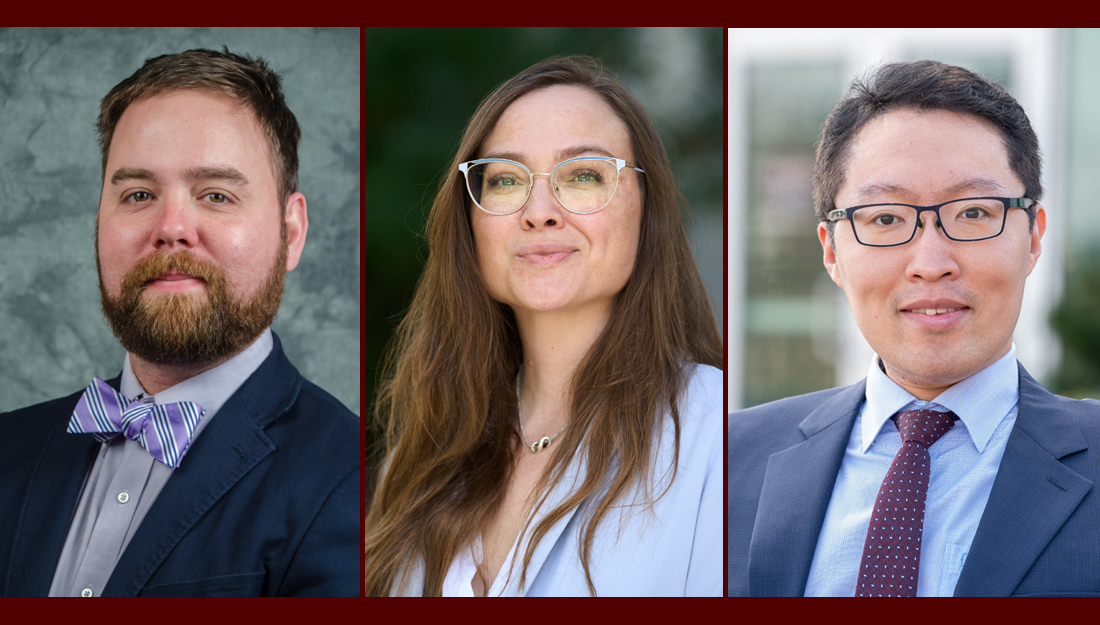- Lauren Rouse
- Health Tips, Healthy Living, Public Health, Show on VR homepage
Providing more opioid education for Texas health care professionals
Educational grant allows Opioid Task Force to provide monthly virtual clinics for health care providers in rural and underserved areas

Bucharest, Romania - March 31, 2020: Shallow depth of field image (selective focus) with the Zoom video conference app/site - work from home during the covid-19 pandemic.
The Texas A&M Health Project ECHO (Extension for Community Healthcare Outcomes) hub received an educational grant in January to extend training that helps health care professionals address the ongoing opioid epidemic in America. With sponsorship from Amerigroup Texas, a division of Anthem, Inc., the hub is able to offer free videoconferencing for providers in Texas, allowing the hub to expand the EMPOWER TeleECHO Clinic program to monthly virtual clinics.
EMPOWER (Enhancing Mental Health Practice, Organization and Workforce through Education and Readiness) enables providers from all disciplines and locations to build their expertise and increase their workforce capacity to implement high-quality, evidence-based care around opioid use disorder prevention, screening, treatment and recovery. According to the U.S. Department of Health and Human Services, 1.6 million people had an opioid use disorder in 2019, and over 48,000 deaths were attributed to overdosing on synthetic opioids (other than methadone.)
“This is just one of many ongoing efforts sponsored by the Texas A&M Opioid Task Force,” said Marcia G. Ory, PhD, MPH, who co-chairs the Opioid Task Force with Joy Alonzo, PharmD, clinical assistant professor at Texas A&M Irma Lerma Rangel College of Pharmacy. “Using a train-the-trainer model, we are expanding our opioid education and naloxone administration training to rural and underserved communities. These efforts have translated into documented lives saved from the scourge of the opioid crisis.”
EMPOWER TeleECHO clinics begin with a short lecture on a specific topic related to opioid and/or substance use disorder. Participants then engage in in-depth discussions related to clinical care for individuals at risk for or suffering from opioid and/or substance use disorder. De-identified case studies are submitted in advance for the discussions. Providers can participate in the EMPOWER TeleECHO one-hour clinics at no cost. In addition, continuing medical education credits are provided.
“As program director for the EMPOWER TeleECHO Clinic, my goal is to build a community of learners interested in improving their clinical practice knowledge and skills related to the care of individuals at risk for or suffering from opioid and/or substance use disorder,” said Chinelo K. Nsobundu, RN, DrPH, CHES®, postdoctoral research associate in the Texas A&M Health Center for Population Health and Aging. “Through the establishment of a community of learners, clinical partnerships can be created to expand the reach and efforts of the EMPOWER TeleECHO Clinic program.”
In addition to the EMPOWER TeleECHO clinic expansion, the Opioid Task Force was recently recognized at the Texas A&M Health Interprofessional Education and Research Symposium (IPER) 6 and was awarded the symposium’s 2020 Team Teaching Award for Interprofessional Excellence, as well as the IPER Symposium Poster Award for Outstanding Interprofessional Activity.
“The task force has greatly benefitted from its interprofessional nature. Since its inception, the task force has incorporated more than 500 student ambassadors from all health science center disciplines into the delivery of programming and interventions,” Alonzo said. “These recognitions acknowledge the task force members and student ambassadors as innovators and leaders in interdisciplinary clinical and public health initiatives.”
EMPOWER through Project ECHO launched in 2019, and focused on helping rural health care providers across Texas address the opioid epidemic for their patients by providing telementoring clinics where medical knowledge could be exchanged with specialists. This, in turn, allowed the rural health care provider to treat their patients locally, rather than where the specialist practiced.
To learn more about EMPOWER TeleECHO clinics and to participate in the monthly discussions, visit public-health.tamu.edu/echo/.
Media contact: media@tamu.edu


